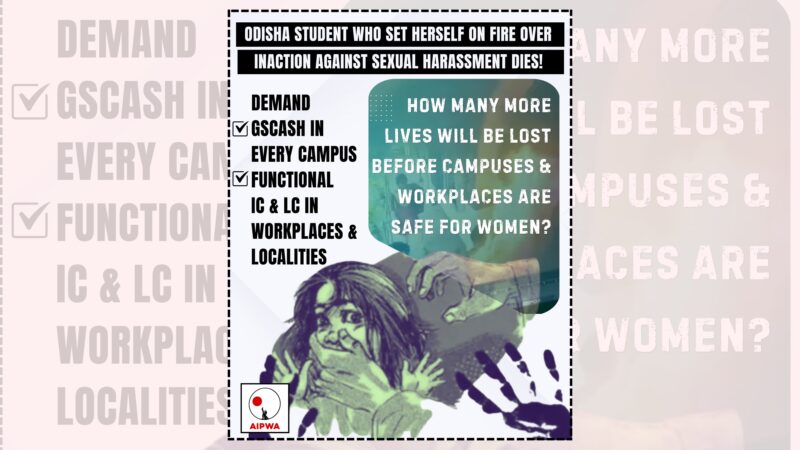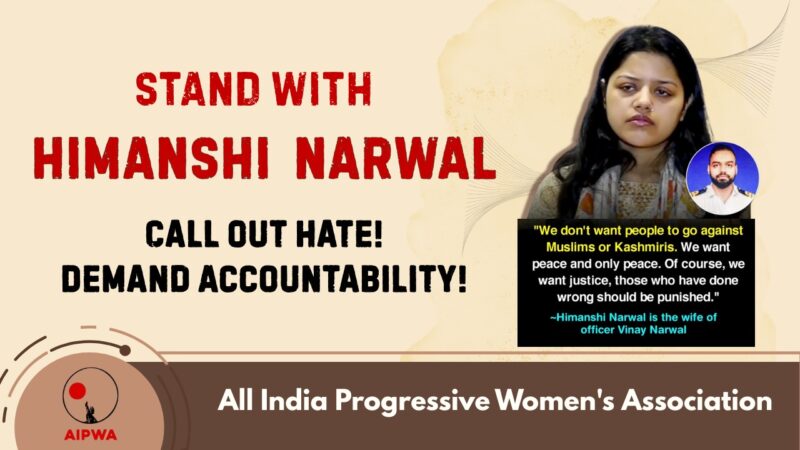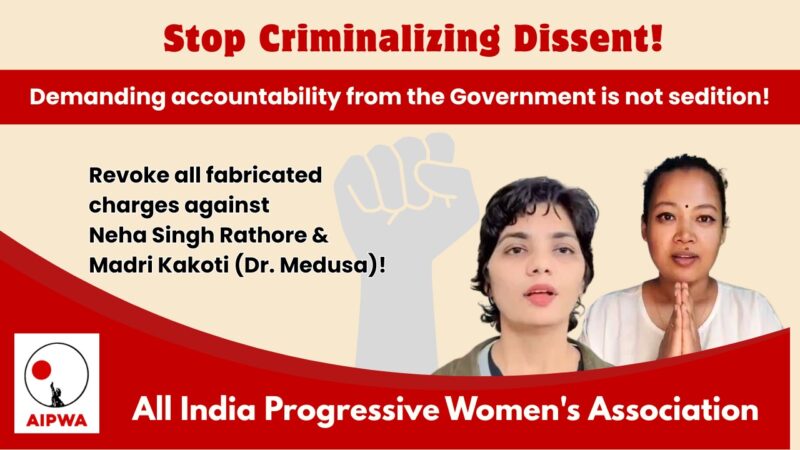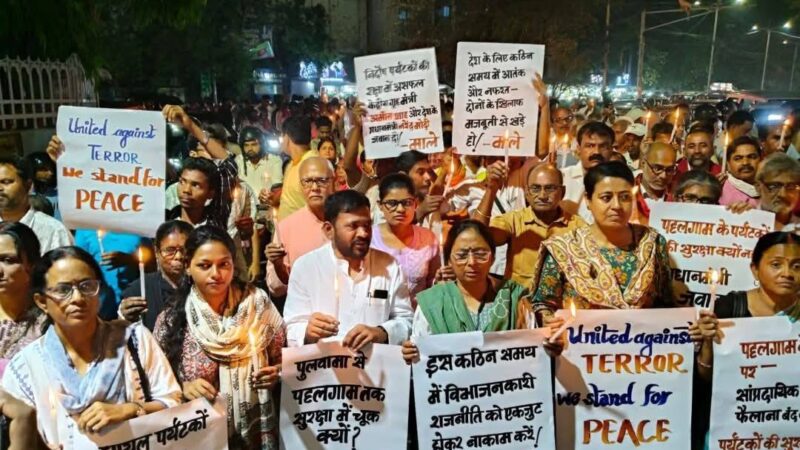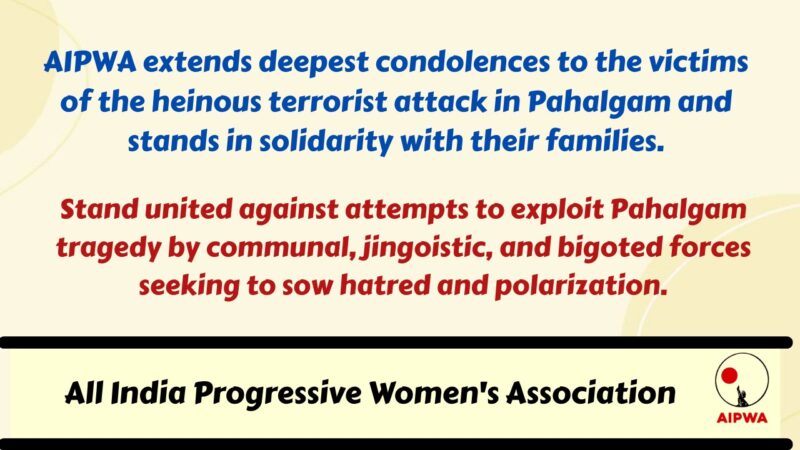AIPWA CONDEMNS THE CHHATTISGARH HIGH COURT’S FAILURE TO RECOGNISE AND REDRESS MARITAL RAPE
We are shocked at the Chhattisgarh High Court’s decision on 10th Feb. 2025 in the case of Gorakhnth Sharma v. State of Chhattisgarh, in which the Court has failed to recognise and redress the issue of marital rape. In the case, an appeal had been filed by the accused husband against his conviction under Section 377 (unnatural offences), 376 (punishment for rape) and Section 304 (punishment for culpable homicide not amounting to murder) of the Indian Penal Code, 1860.
This case concerns an incident in 2017, in which the husband had committed unnatural sex with the victim (who was his wife) against her will during which he had inserted his hand in the anus of the victim. The victim then, in pain, was admitted to the hospital through which a report was made to the police and the case was registered against the husband. The victim subsequently, after giving her statement, died in the hospital during treatment on the same date.
The Court holds that even for “unnatural sex” under Section 377, consent as defined under Section 375 (rape) is not required as it is between husband and wife. He also holds that, “Thus, it is quite clear that at the same time, as per the definition of Section 375 of IPC, the offender is classified as a ‘man’. Here in the present case, the appellant is a ‘husband’ and victim is a ‘woman’ and here she is a ‘wife’ and parts of the body which are used for carnal intercourse are also common, therefore, the offence between husband and wife cannot be made out under Section 375 IPC as per the repeal made by way of amendment and in view of repugnancy between both the sections.” The Court notes that the dying declaration of the victim does not inspire confidence as well, and holds that it cannot be relied on for technical reasons.
At the outset, the Court holds that, “Thus, it is quite vivid, that if the age of wife is not below age of 15 years then any sexual intercourse or sexual act by the husband with her wife cannot be termed as rape under the circumstances, as such absence of consent of wife for unnatural act loses its importance, therefore, this Court is of the considered opinion that the offence under Section 376 and 377 of the IPC against the appellant is not made out.” Here, the Court fails to consider the Supreme Court ruling in the case of Independent Thought v. Union of India (AIR 2017 Sc 4904), in which the Court had held that the age limit of 15 years must be read as 18 years of age in order for the offence to not constitute rape for sexual acts by a man with his own wife.
It is disappointing that the Chhattisgarh High Court has failed the people by refusing to acknowledge the reality of marital rape, and has extended the regressive marital rape exception in Section 375. In doing so, the Court failed to apply the principle of progressive-realisation of rights, that rails against any regression in an individual’s rights and imposes a duty on all state functionaries to ensure that a person is able to increasingly and freely enjoy their rights, without degradation. The Court also fails to consider constitutional morality and the changing jurisprudence on the rights of women, specifically their right to bodily autonomy which should necessarily include the right to refuse sexual intercourse, whether the other party is her husband or not.
In fact, in March 2022 in the case of Hrishikesh Sahoo v. State of Karnataka, the Karnataka High Court had held, “A man is a man; an act is an act; rape is a rape, be it performed by a man the “husband” on the woman “wife”.” The Court had held that the legislature must consider changing the marital rape exception in the law. The Court noted the history of the provision originating in Macaulay’s Code in 1837 that proceeds on the premise of marriage in medieval law of husbands wielding power over their wives, who are treated as chattels. The Court had noted that in post-republic India, such a provision does not have a place as marriage in an association of equals. The Court also noted that the J.S. Verma Committee had also recommended that the marital rape exception be removed. The Court had thus rejected the husband’s plea to quash the case against him for offences of rape and unnatural sex with his wife.
Disappointingly, the Supreme Court had shortly after stayed the Karnataka High Court’s judgment. This case is still pending before the Supreme Court. In 2022, the Delhi High Court had also delivered a split verdict, with one judge holding that the marital rape exception is in violation of Articles 14, 15, 19(1)(a) and 21 of the Constitution and hence struck it down, with the other judge upholding its constitutional validity. Thereafter, in 2023 the Gujarat High Court has also noted in a case denying bail to a woman accused of abetting brutal sexual acts by the husband against the wife, that gender violence is mostly unseen and shrouded in a culture of silence, and that rape is rape, even if it performed by the husband.
Several pleas have been filed before the Supreme Court regarding the marital rape exception, which the Union Government has opposed. The Union Government has taken the stance that consent would vary in case of a marital relationship, and that in the institution of marriage, “there exists a continuing expectation by either of the spouse to have reasonable sexual access to the other.” It states that the question requires a “delicate legislative balance” and that if the legislature of the view that the marital rape exception should be retained for the sustenance of the marriage institution, the Court should not strike it down as this would be “excessively harsh”. The Union Government appears to have regressed several decades and is seeking to sacrifice bodily autonomy for regressive and patriarchal concepts of marriage. This exposes the patriarchal agenda of BJP’s union government that is driven on considerations other than rights.
The Supreme Court has significantly delayed a decision on this issue, and has failed to fulfil its duty to uphold the constitutional rights of the people. On October 23rd 2024, the Supreme Court had deferred the hearings on marital rape exception on the ground that the hearings might not conclude before Diwali vacations. The case has not been heard since then.
The Chhattisgarh High Court, being a constitutional court, ought to have considered the rights of a woman, irrespective of her being in a marital relationship, having the right to equality, the right to bodily autonomy, the right to choose and the right to live with dignity. However, the Court has chosen to ignore these hard-won rights and regress to pre-constitutional positions of law.
We demand that the legislature repeals the marital rape exception to the provision of rape in the Indian Penal Code, and the long-standing demand of the women’s movement in India, including that of AIPWA, be honoured.
Meena Tiwari
National General Secretary
Rati Rao
National President

